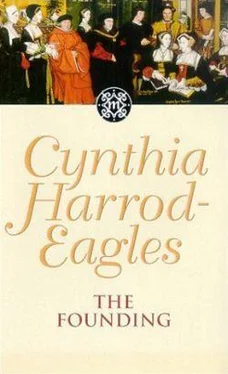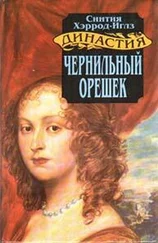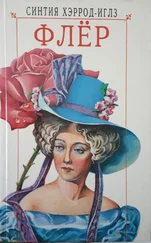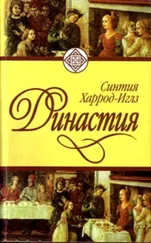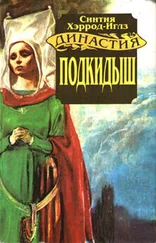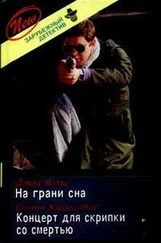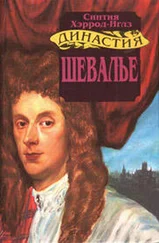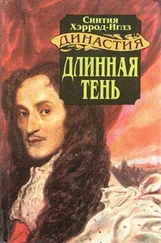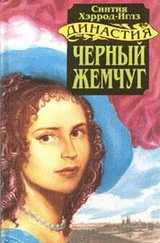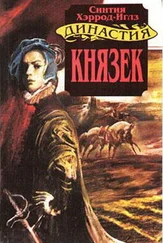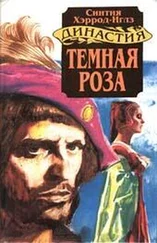And amongst the powerful men who helped to rule was the great Beaufort family, also kin to the King. To them had fallen the task of carrying on the war they had inherited from the former King; not a profitable war any more, but a very expensive one.
These great men needed money: Morland had money. It was the Earl of Somerset himself who suggested to his brother Edmund that his young ward would make a suitable wife for Morland's son. The marriage would ally Morland to one of the great families of the land, and would give him the right to the protection and patronage of the Beaufort family — the 'good-lordship' as it was called. On the other side, it would hitch Morland and his gold firmly to the Beaufort wagon, give them the right to his money and service whenever they needed it. That's how bargains were made: that was what marriage was for, as both Robert and the unknown Eleanor Courteney had been aware since early childhood.
‘Aye, I've got plans,' Morland went on. He banged his wooden cup on the table and at the signal one of the kitchen boys who did duty as page ran to fill it again with ale. 'I'm a rich man. I've got land, sheep and gold. And I've one son, just one son. What do you think I want for that son, eh boy? Do you think I want to see him a rough country farmer like me? Do you think that's what your mother — God rest her soul —' he crossed himself piously and Robert followed suit automatically— 'what your mother wanted? No, lad, no Robert. It's too late for me — but before I die, I'll see you a gentleman.'
‘A gentleman?' Robert said.
His father cuffed the side of his head, but gently. 'Stop repeating everything I say. Yes, a gentleman. Why do you think I've chosen this girl for you, instead of a rich farmer's daughter to bring me more land? Because this girl will bring you family.' He mused for a moment, and then said with unwonted gentleness, 'Aye, and maybe it was for the best it was you who lived. You can read and write and play music. Edward couldn't. Mayhap you'll make a better gentleman than he would. Your sons will be gentlemen born. Too late for me — you can't make a silk purse out of a sow's ear. Your mother did right to teach you to read.'
‘Lots of gentlemen can't read, Father. And lots of yeoman can.'
‘Well, well,' Morland said impatiently. He didn't like to be comforted by his own son. 'Anyway, this girl can read, so I'm told. So you'll have a lot to talk about. But never forget where your wealth came from.' Robert knew what was coming next. His father would quote the little rhyming tag dear to the heart of all sheepmen. "I thanke God, and ever shall; it is the sheep has payed for all".'
‘Yes, Father,' Robert said dutifully.
*
There was a frost in the night, first sign of the declining year, and Robert shivered as he was woken in the dark by William, the butler. Robert's little truckle bed was under the window, and the shutters were not tight, and let in a dribble of cold air. His father slept in the big bed, and that had curtains that drew right round it. He would have slept warm.
Breakfast was waiting for them in the hall — bacon cooked in oatmeal, and ale and bread — and by the time they had eaten the horses were tacked up and waiting in the inner yard. There were six of them, five riding horses for Robert and his father and three servants, and a pack horse to carry their own gear and the presents for the bride and her guardian. Seeing his father was not in sight, Robert hurried across to one of the tackle sheds and was greeted as he ducked inside by a gentle whine. His bitch, Lady Brach, was in there on a bed of straw with her new family — though the family was not so new now, and Brach often deserted them to their own devices to follow at her master's heels. The whelps ought by rights to be weaned now, he thought. He missed Brach's padding sound behind him.
‘Robert! Where in heaven's name is that boy?' It was Morland's voice out in the yard.
‘I have to go,' he said to his bitch, and she beat her tail against the ground at the sound of his voice. 'I wish you could come with me, Lady Brach, but it can't be. Still, when I come back, there'll be a new mistress for you to love — and I hope you won't be jealous and snarl at her.'
‘Robert!' The voice was growing irate. He caressed the bitch's head hastily and got to his feet, and then paused. A wonderful idea had come to him. In a frantic hurry now he stooped and felt about amongst Brach's litter, and picked out the biggest and strongest of the whelps: he would take it as a present to his bride-to-be. He pushed the puppy down inside his shirt for the warmth and ran out into the yard just as he was about to be called for the third time.
A minute later they were trotting out on to the road in a dark, only just tinged with grey. At this time of the year — the time of the summer shearing — there were wool trains every day loaded down with the county's clip and heading south for the great market and port of London. The trains were sometimes a hundred or two hundred horses long, and they moved barely at foot-pace, filling the road with their bulky, swaying bodies and raising behind them such a dust that anyone travelling behind could scarcely breathe. There were in fact people who waited for the wool trains and rode with them, those travellers who wanted the company or felt they needed the protection of numbers. The Morlands were not travellers of this kind. Five men, armed and well mounted, were not likely to be attacked. The wool trains started out at dawn; the Morland party must set off before dawn if they were to get on the road ahead of them. When the first rim of the sun appeared over the horizon, they were already more than five miles from home.
*
Eleanor Courteney sat on the carved oak window seat in the south window of the solar, trying to get the last of the good light on the embroidery she was doing. It was a shirt for her master, and the delicate frocking at the neck needed the finest white silk and the tiniest needle. When the light grew too bad she would put it aside and take up some plainer work. From time to time she lifted her head and gazed out of the window. It was a perfect late summer day, and all around her, under the inverted blue bowl of the sky, were the rolling green hills of the Isle of Purbeck.
She loved it here at Corfe, the summer castle. She had lived all her life within sight of those hills and she could — not imagine ever leaving. Across the room from her, sitting on a stool by the unlit fire, was her mistress, another Eleanor: once Eleanor Beauchamp, now Lady Eleanor Beaufort, wife of Lord Edmund Beaufort, and nicknamed Belle for her fair beauty. Belle was pregnant again and hoping for a son this time. The summer's heat had tired her, and her hands moved slowly amongst the coloured silks. Eleanor would probably finish the task for her. Many a time when they had been girls together Eleanor had done double her task of spinning or weaving to keep Belle out of trouble.
The two girls had been brought up together from the time Eleanor's parents died. Belle was two years the elder, but Eleanor was forward and well-grown, so they never felt the difference, and together they had been taught to read, to write and to reckon; they had learnt French and Latin and dancing and music; they had learnt to use the needle and had done their daily task of spinning and weaving. Belle, small and fair and pretty, was generous and kind-hearted and lazy. Eleanor, taller and dark, was energetic, sharp and clever. They had perfectly complimented each other.
When Belle had married Lord Edmund she had begged to take Eleanor with her, and the plea had been admitted, and Lord Edmund had bought her wardship from Belle's father. To Eleanor it had seemed to seal her fate. She would stay here for ever, tending poor fretful Belle through her interminable pregnancies and later, she hoped, become lady-governess to the results of those pregnancies. That was the summit of her ambition. She hoped for nothing more.
Читать дальше
